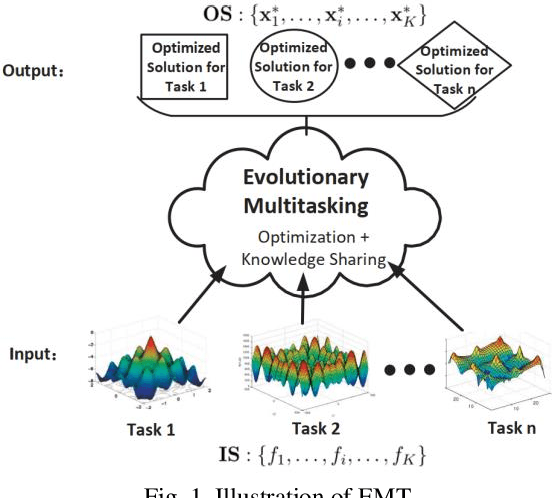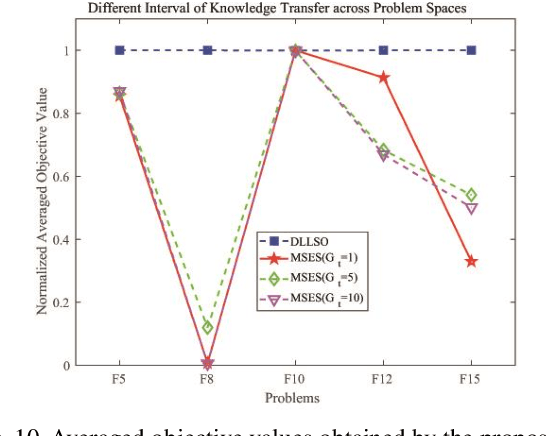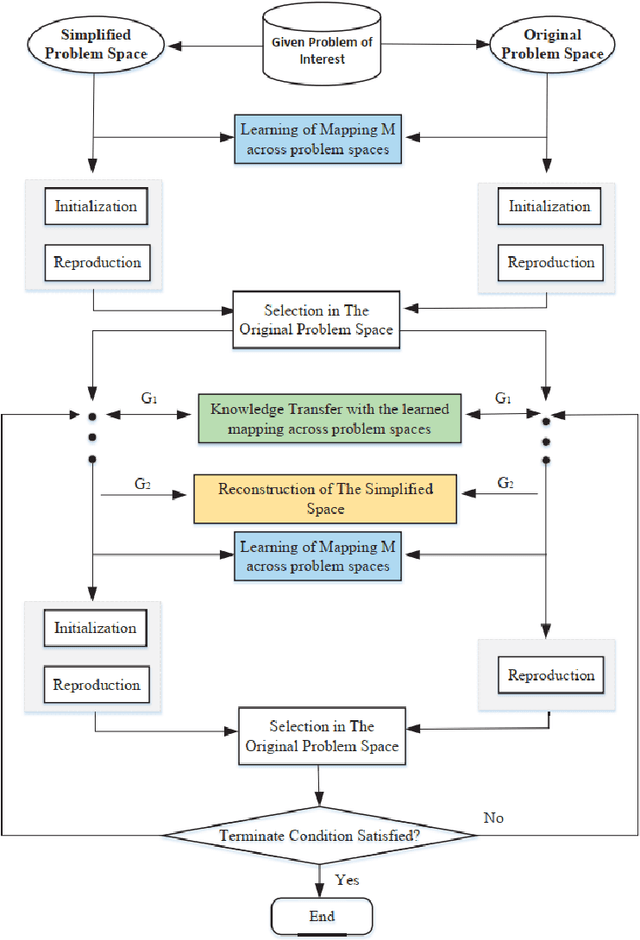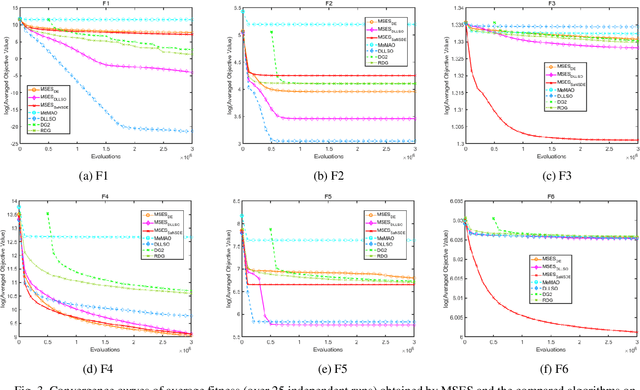Multi-Space Evolutionary Search for Large-Scale Optimization
Paper and Code
Feb 24, 2021



In recent years, to improve the evolutionary algorithms used to solve optimization problems involving a large number of decision variables, many attempts have been made to simplify the problem solution space of a given problem for the evolutionary search. In the literature, the existing approaches can generally be categorized as decomposition-based methods and dimension-reduction-based methods. The former decomposes a large-scale problem into several smaller subproblems, while the latter transforms the original high-dimensional solution space into a low-dimensional space. However, it is worth noting that a given large-scale optimization problem may not always be decomposable, and it is also difficult to guarantee that the global optimum of the original problem is preserved in the reduced low-dimensional problem space. This paper thus proposes a new search paradigm, namely the multi-space evolutionary search, to enhance the existing evolutionary search methods for solving large-scale optimization problems. In contrast to existing approaches that perform an evolutionary search in a single search space, the proposed paradigm is designed to conduct a search in multiple solution spaces that are derived from the given problem, each possessing a unique landscape. The proposed paradigm makes no assumptions about the large-scale optimization problem of interest, such as that the problem is decomposable or that a certain relationship exists among the decision variables. To verify the efficacy of the proposed paradigm, comprehensive empirical studies in comparison to four state-of-the-art algorithms were conducted using the CEC2013 large-scale benchmark problems.
 Add to Chrome
Add to Chrome Add to Firefox
Add to Firefox Add to Edge
Add to Edge